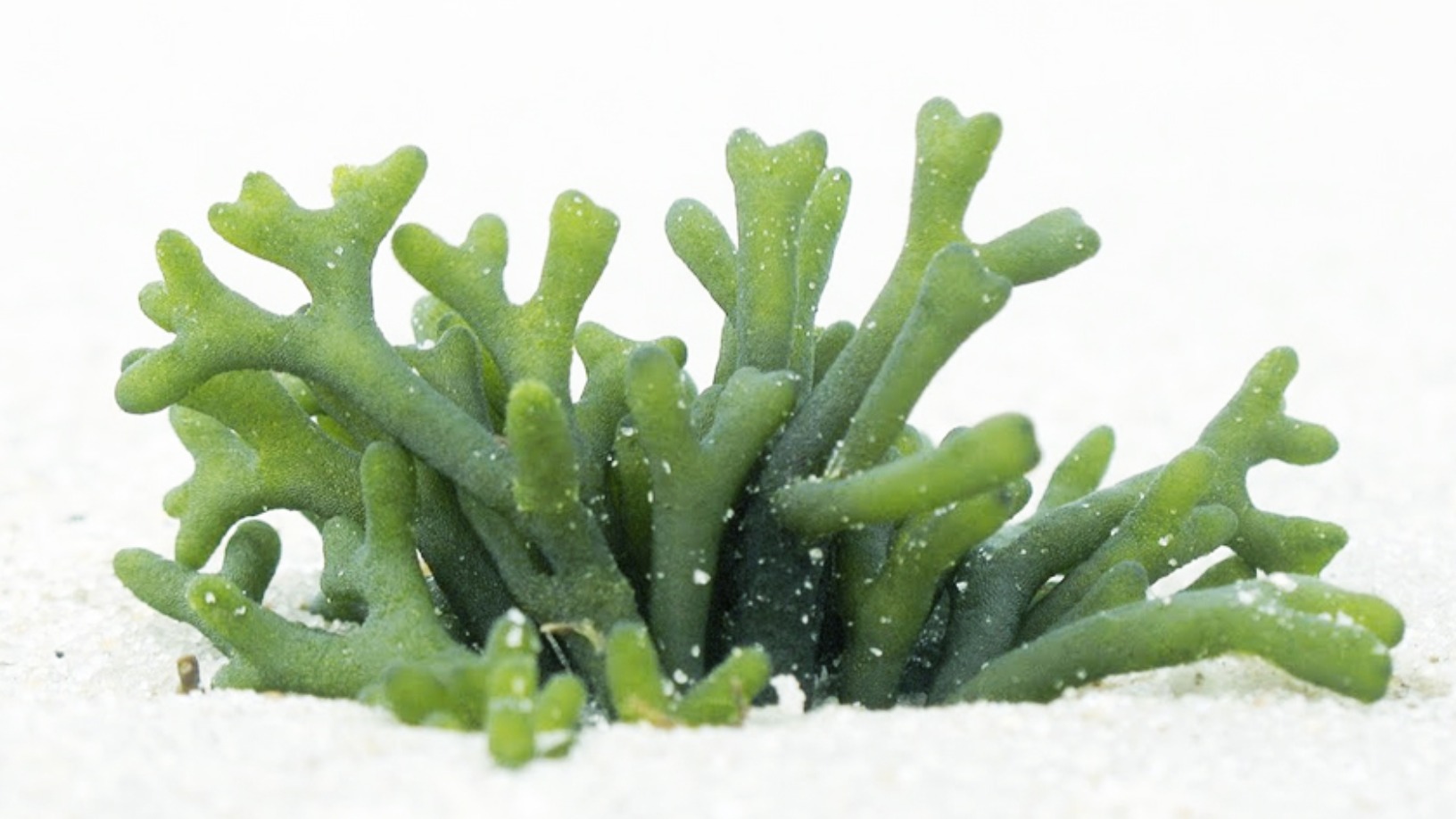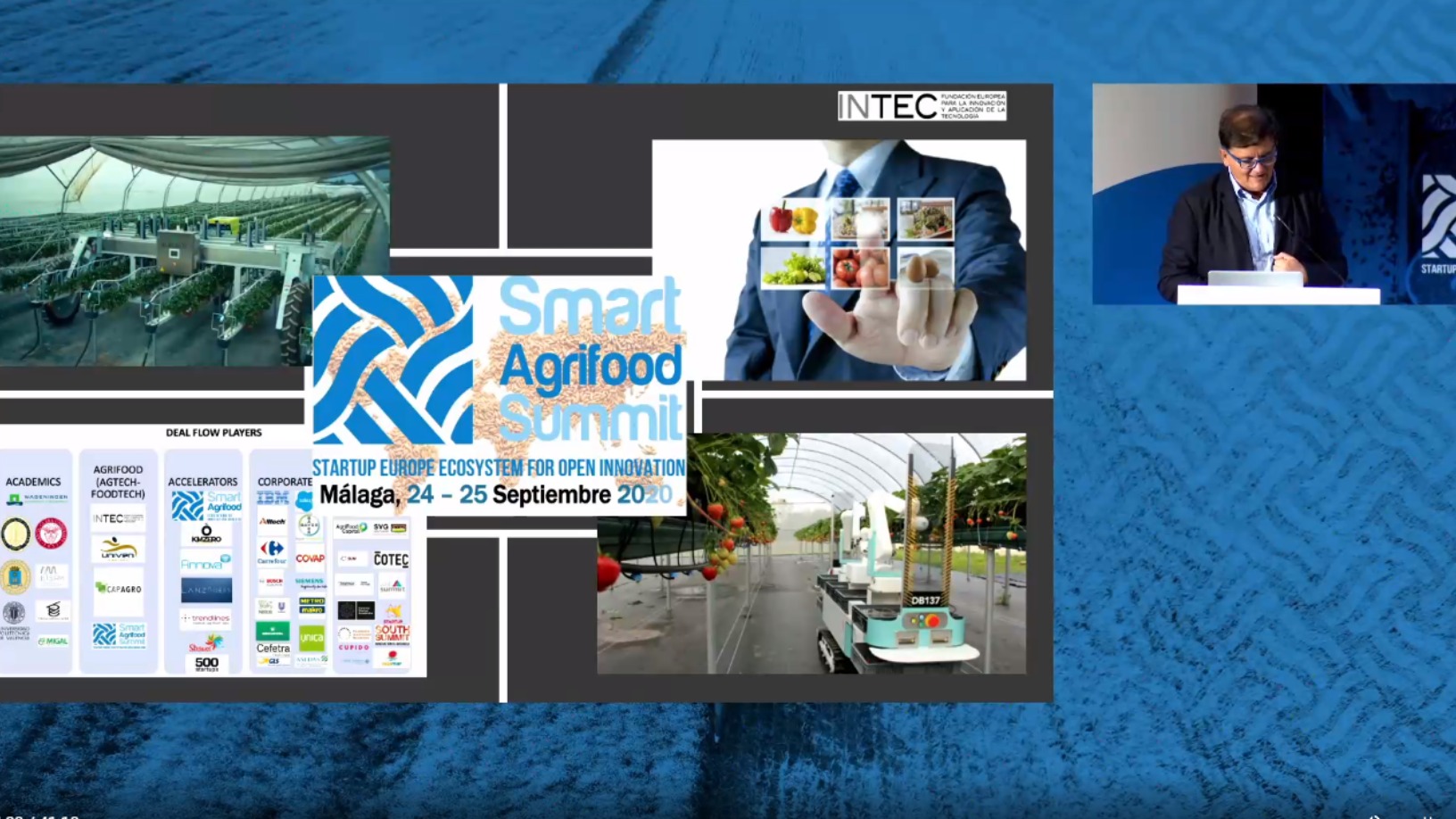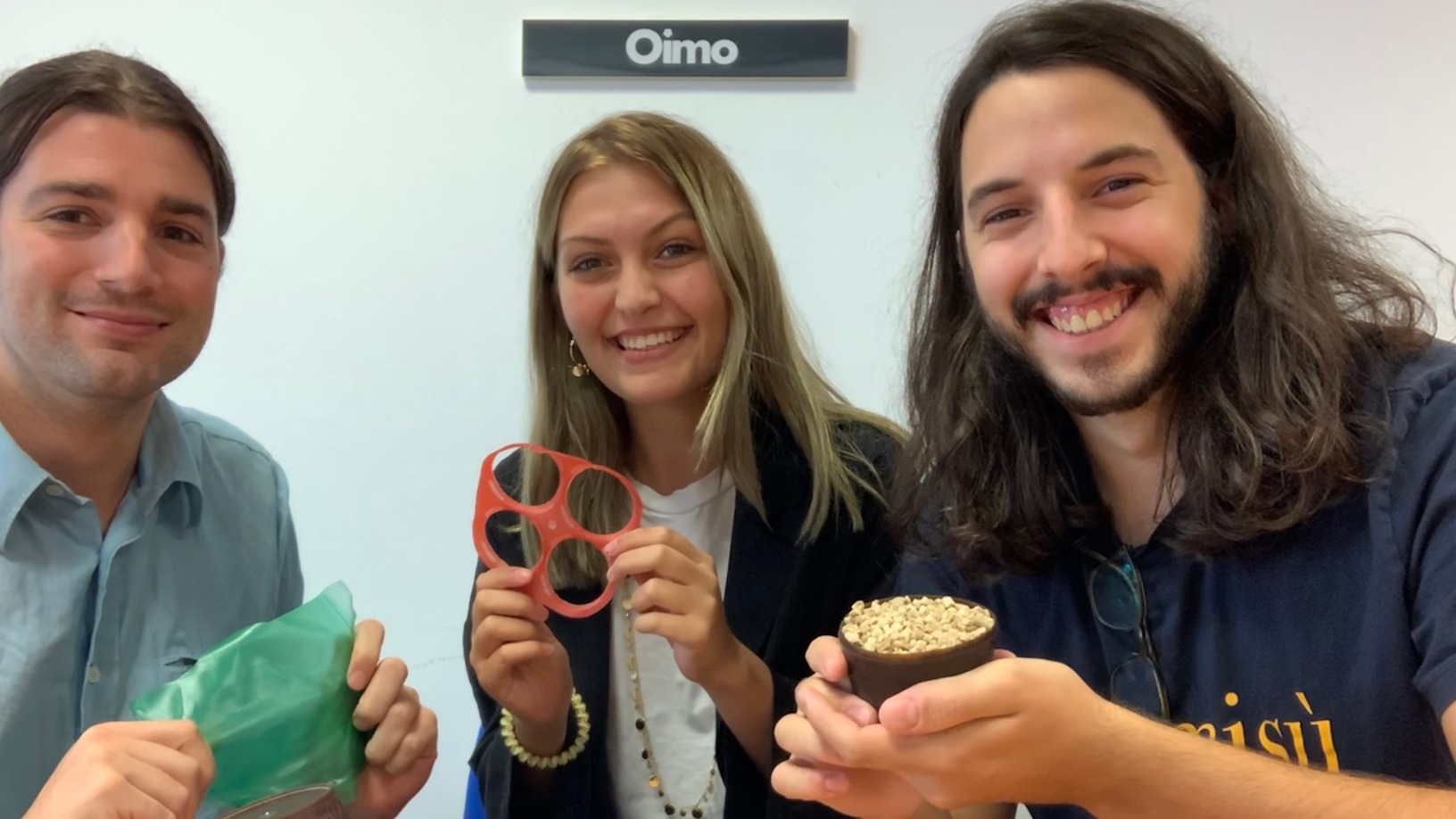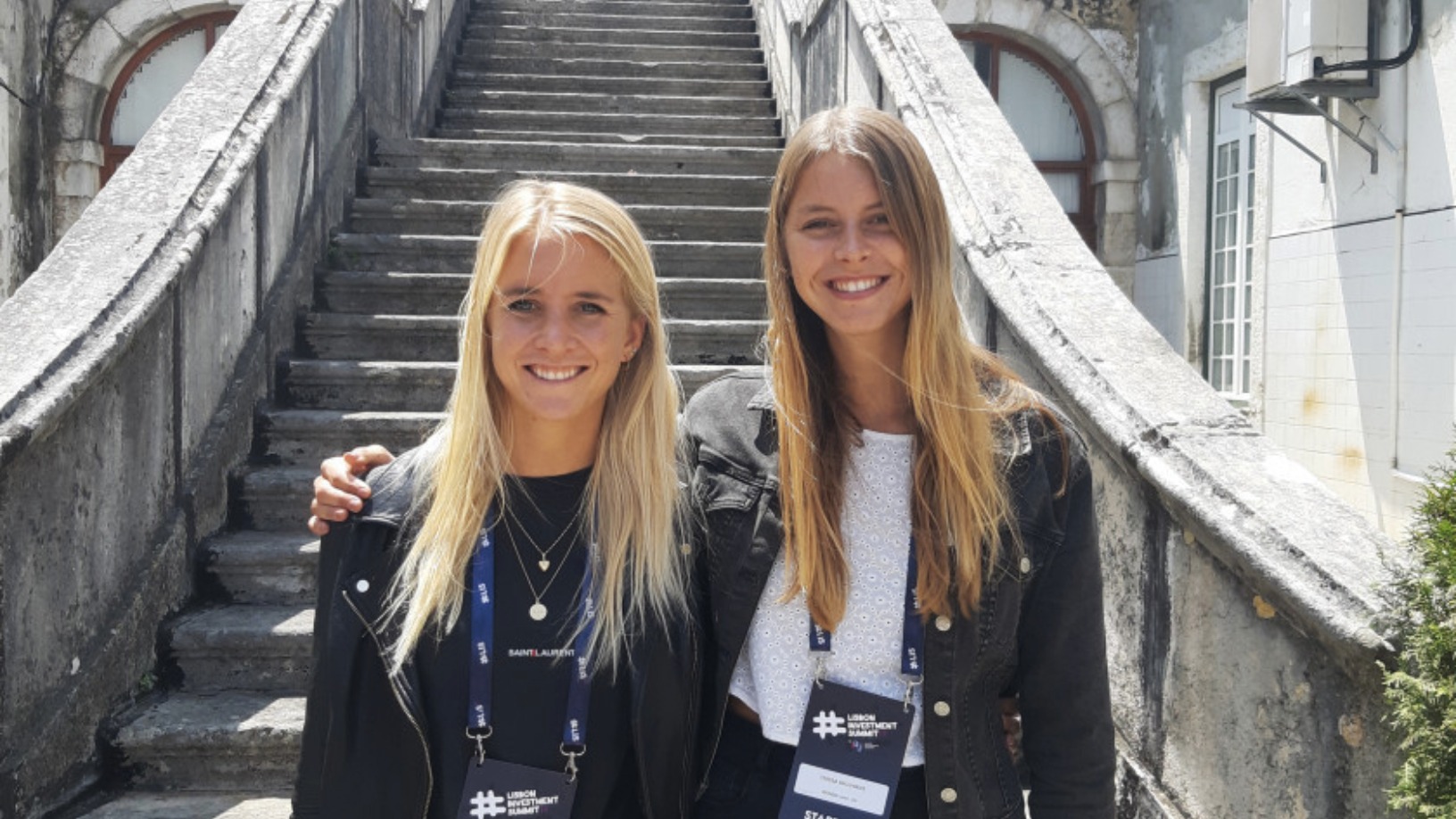In recent years, scientists have come up with many kinds of eco-friendly packaging to replace plastic, ranging from IKEA’s fungus-based packaging to Veuve Clicquot’s grape skin- and potato starch-based carton boxes for its champagne bottles. In Cádiz, Spain, two marine biology graduates decided to turn the tons of algae they saw washed ashore the Andalusian coast every year into biodegradable packaging, too.
“Absolutely nothing is done with the algae,” said Victor Manuel Pérez, who together with his former classmate, Sofia Tristancho, co-founded Futuralga in early 2018. “We thought it’d be a good idea to give the algae a second life by creating packaging from the macroalgae raw material.”
The pair met while reading Marine Science at the University of Cádiz, after which Tristancho continued with a master’s in Marine Biology in Portugal while Pérez remained in Cádiz to pursue a master’s in Agriculture Technology. After a few years spent working apart, they decided to found Futuralga to tackle the issue of algae accumulation on the Andalusian seashore.
Demand for biodegradable alternatives to plastic will also rise as the EU sets to ban single-use plastic packaging by 2021. “More sustainable alternatives to plastic will have to be found and the market will grow, there’s room for everybody,” Tristancho said in a joint interview.
The pair is banking on a circular economy model, which they say is a financially sustainable way to produce and sell algae-based packaging. As the seaweed washed ashore is considered garbage, city councils are responsible for the collection and disposal of the algae. A local municipal government "pays €45 per ton for the disposal of algae, and every year they collect about 400–800 tons,” Pérez said. “These disposals can be profitable if they sell the algae to us instead of throwing it away.”
Starting with fruit, vegetable packaging
The commercial potential of algae-based packaging is wide-ranging, from use in the food sector to logistics. “Food packaging faces very demanding [safety] tests, so our idea is to start first with container trays for fruits and vegetables that can later be extrapolated to other types of packaging for different uses,” Pérez said.
Futuralga, which participated in the Smart Agrifood Summit in Malaga, Spain, last month, is one of a handful of young startups that are producing bioplastics made of marine algae, including Barcelona-based Oimo, Indonesia’s Evoware and MarinaTex in the UK.
Currently, Futuralga estimates each of its tray to cost 8–10 euro cents – compared with styrofoam trays sold in bulk costing about 4–7 US cents each – but that number could still change. “Everything will be determined by the industrial process that we set up, since the cost of our raw material will be minimal," Pérez said.
“Our business model is to collaborate with cooperatives and partners with large production volumes,” starting with a planned production of 1m trays from 400–500 tons of algae. This will rise steadily to 5m trays by the fifth year. “We prefer to be cautious [in our projection] so as not to fail within the first year of operations.”
Usability tests, pilot, patent pending
Futuralga has started talking to several municipalities for potential collaborations. So far the startup has only a license from the Cádiz authorities to collect seaweed for research.
After collecting the seaweed from the coast, Futuralga separates the algae from the mix of materials like sand and plastic waste. The algae is then passed through a drying process so it keeps for a longer period. The dried algae is crushed and mixed with other natural materials to beef up its texture, making it more solid as well as giving it thermoforming properties so it resembles regular plastic. This crucial characteristic enables the biomaterial to be used as plastic alternatives for packaging.
However, algae has high concentrations of arsenic, so Futuralga first has to send its bioplastics for use testing at ITENE, the Technological Institute of Packaging, Logistics and Transportation in Valencia. “They’ll ultimately be the one that can tell us if the toxicity [of the algae] can be potentially transferred into the packaging,” Pérez said.
Meanwhile, the startup is exploring ways to add a natural insulating layer to prevent any leakage of possible toxic components like arsenic, isolating and keeping it within the insulation lining. ITENE is also conducting composting feasibility tests and degradation timeframes. “Being an organic product, made up 90% of algae, the decomposition time should be short,” he said. Current estimates indicate that the packaging should start degrading during the fourth week.
Food preservation effectiveness is another test that Futuralga’s product is undergoing. “We are aiming to attain the same properties as the traditional paper trays used for fruits and vegetables that are usually stored at very low temperatures during transportation,” Pérez said.
Although the tests are still ongoing, the company plans to set up a laboratory soon for operations to begin in the second quarter of 2021 to produce Futuralga’s first fully functioning prototype by the end of 2021. Plans also include filing a patent for its technology by mid-2021 and to launch commercially after the prototype is ready.
Pérez said eight companies in China and Venezuela have expressed interest as potential clients. One of Spain’s biggest international packaging companies is also a potential partner.
Their first pilot will be launched with Cooperativa Las Virtudes in Cádiz, a farming co-op with over 500 members using well over 15,000 trays for fruits and vegetables daily. “They’ll be the first to test our product and we’ll see how the market responds," Pérez said.
Andalusia, ideal for pilots
The co-founders initially joined CeleraEmprende, the six-month acceleration program under Andalusia Emprende by the Andalusian regional government. This was followed by other acceleration programs: Oceano Azul and Blue Bio Value, both in Lisbon; Porto Atlantic in the Canary Islands; and more recently, EIT Climate-KIC in the Netherlands and EIT-Food Innovation in Spain, where the startup won second prize.
“So far we’ve managed to support our business with our own funding; and we received awards of€8,000 from Blue Bio Value and €15,000 from EIT Climate-KIC; we also won other prizes at the national level,” Pérez said.
“We’ve also applied to the €2m European funding granted to Cádiz to solve agricultural problems in the region, problems like the use of plastic,” he added. If successful, the company plans to use the funds on the pilot project with Cooperativa Las Virtude, the first of several to be led by Futuralga, with support from the University of Cádiz, the Diputación of Cádiz, the Grupo Operativo Agrario and GlobalTech.
Andalusia contributes a significant portion of the country’s agricultural exports, generating total turnover of €692m during January 2020. The vast southern coastal region offers a diverse landscape including 600 miles of seashore and 172m hectares of agricultural land with an annual output of 7.2m tons of vegetables and 2m tons of fruits.
But in September 2019, Andalusia was branded an environmental catastrophe due to unmanageable volumes of algae left rotting across its coastline. Local fishermen lost nearly 100% of their catch, forcing local authorities to seek government aid to help them to recover from the losses and to get the beaches cleaned up.
“We want to give our little contribution while doing a job we love. We are fighting to achieve that,” Pérez said. “We attended one of the most important fairs for fruits and vegetables in Europe and realized that, although there were many organic products on offer, 95% of the packaging were still made of plastic.”












